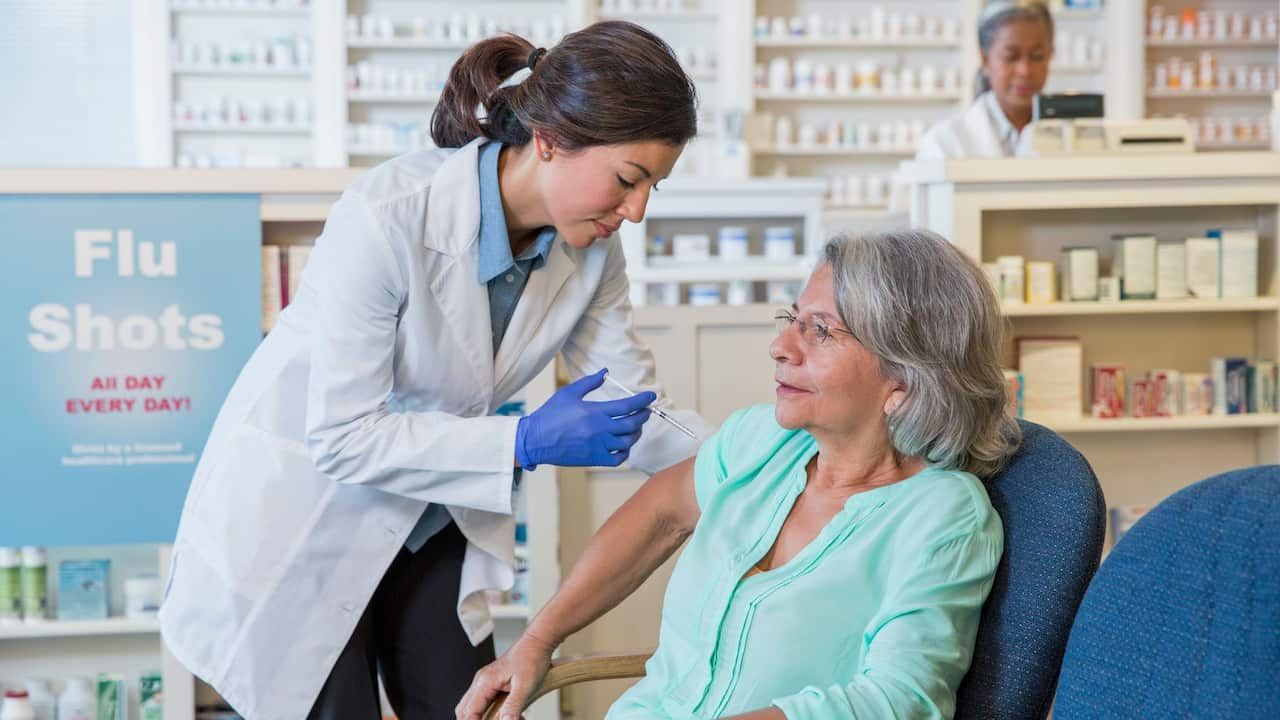Medical and scientific experts have closely studied influenza since the 1918 Spanish flu pandemic that took more than 50 million lives worldwide.
According to the Influenza Specialist Group formed by medical and scientific experts from Australia and New Zealand, Australian cases of influenza generally cause 1,500 to 3000 deaths each year.

Coronavirus, on the other hand, is a relatively unknown new virus with no vaccine.
Many of those infected are asymptomatic silent carriers.
The death rate increases for those aged over 50 with the over 80 age group being the most vulnerable.
Dr Chris Moy, Australian Medical Association’s South Australian branch president is urging seniors to get their flu shots as the public health system prepares for an influx of COVID-19 patients.
Dr Moy explains that if we get COVID -19 or influenza first our immune system would be down and then the second infection is more likely to cause serious consequences including death.
Social distancing measures practised across Australia is slowing the COVID-19 outbreak. However, the impending winter season will likely weaken the immunity of the elderly and those with chronic illnesses.

Dr Moy says current intensive care capacity across the country won’t be enough to meet the escalating needs.
He says now is the time for families to discuss advance care plans to prevent doctors from making traumatic life-saving choices between the young and the old.
Now is the time to have those heart-felt, kind, honest, loving discussions about what people want.
University of Tasmania’s associate professor of biomedicine Dr Guna Karupiah specialises in viral infections.
He says older people are more susceptible to both influenza and COVID-19 due to a weaker immune system.
Meanwhile, children under the age of 5 and people over the age of 65 are at a greater risk of complications from influenza.
Under the National Immunisation Program, people aged over 65, those of Aboriginal and Torres Strait Islander background, pregnant women, and children between 6 months to 5 years old can get vaccinated for free.
Dr Frank Occhino is a senior doctor with SmartClinics, a growing network of general practitioners in South East Queensland. He says that this year vaccination program starts early due to COVID-19.
Dr Karupiah says even if you’ve been vaccinated against the circulating flu strain offshore it is still a good idea to get a flu shot in Australia. If in doubt, check with your GP.
While the flu shot can’t necessarily guarantee a full protection against influenza, Dr Karupiah says seniors, pregnant women, and children under 5 are still advised to get vaccinated.
The social distancing measures the federal government has put in place requires people to stay at least 1.5 metres apart.
This poses new challenges for GPs to keep their patients safe as they wait to get vaccinated in clinics.
Dr Occhino has different strategies for different patients and his regular nursing home patients won’t need to travel for a flu shot.
One of our nurses will go and vaccinate all the patients in that nursing home so that way they don’t have to actually go out in the community. With those who are pretty much housebound, we are organising to do it on a house call basis.

Dr Karupiah says residents at age care facilities can prevent the flu and COVID-19 by washing their hands frequently with soap for at least 20 seconds or sing a song instead of counting time.
They should avoid touching their face after coming into contact with a potentially contaminated surface in common areas.
The precautions that one would take would be similar for both influenza and COVID-19 because both are respiratory infections. They are spread through coughing or sneezing or touching areas where someone else has sneezed or coughed.
Contact your GP to find out how you can safely receive a flu vaccine.
If you’re experiencing emotional stress, loneliness and need support, ring Lifeline on 13 11 14 or Beyond Blue on 1300 22 4646 for 24-hour support.
